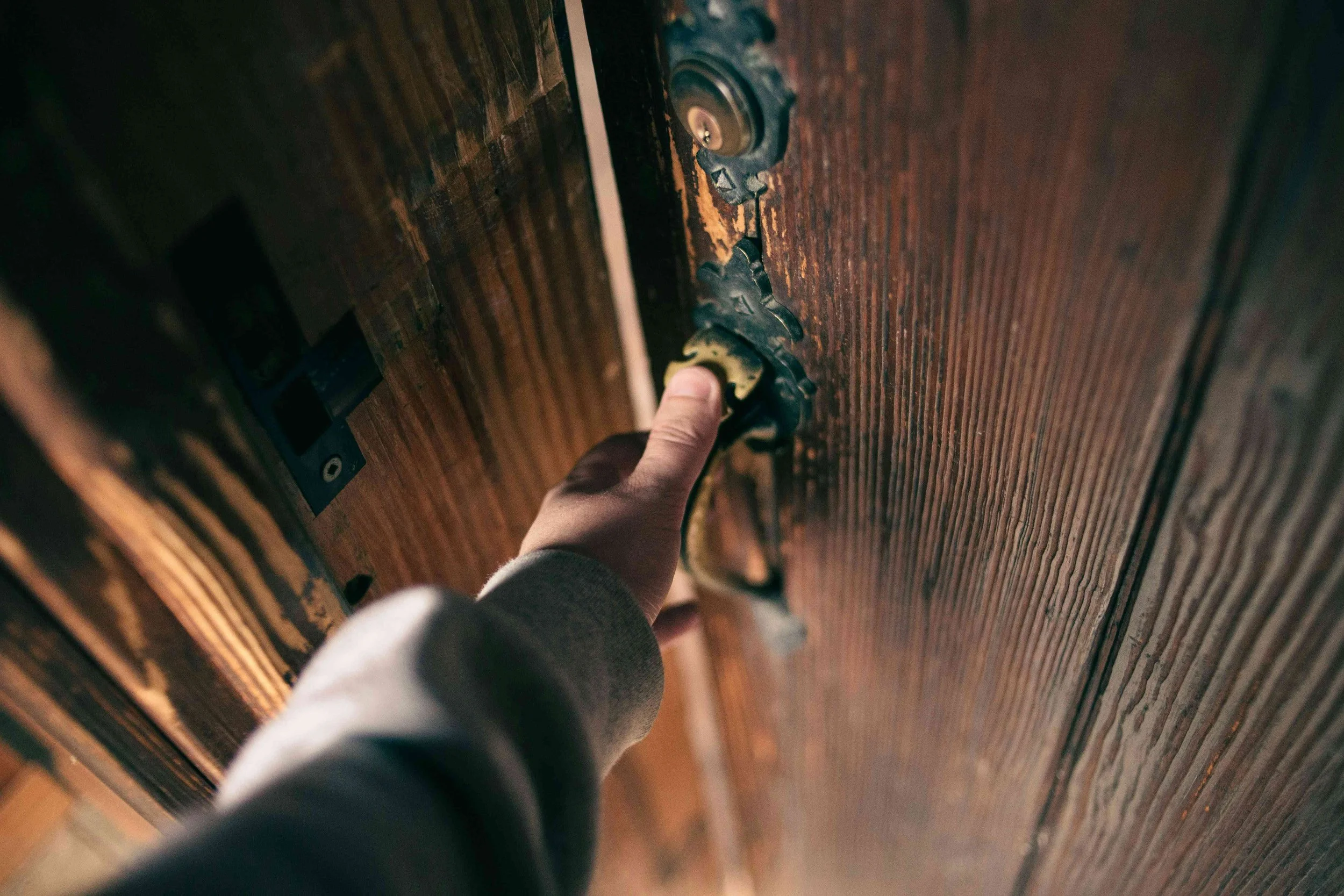How to Get Closure From a Relationship
Breakups can involve an intense and complicated tangle of emotions: deep sadness, confusion, regret, anger, longing. The relationship may have ended suddenly; or perhaps it was a slow unraveling. Maybe you were the one who left, or maybe this was not your choice. Regardless, you are not alone in wondering how to get closure from a relationship.
We often imagine it as something we’re going to get from someone else—a final conversation, a clear explanation, or an apology that would allow us to move forward. Maybe you’ve caught yourself playing out that encounter in your head or thinking: “if I could just talk to them one more time, ask them why they did that, or hear that they still cared…” And this makes total sense. We crave a sense of resolution, some kind of clean emotional landing. But here’s the hard truth: closure doesn’t come from them. It comes from within.
It’s not linear or instant, but it comes over time as we grieve and reconnect with our own sense of worth. Let's walk through what that process can look like—what helps, what doesn’t, and how you can gently begin to find your way forward.
Culturally Common Ideas of Closure
Many of us come to believe that closure can be experienced by an event—one last conversation. Maybe you imagine your ex saying:
“I really did love you.”
“I’m sorry for how I hurt you.”
“It wasn’t your fault.”
“Here’s what went wrong…”
You might hope they’ll take responsibility for their part or express what the relationship meant to them. And of course you want to hear those things! Who doesn’t? Especially if you didn’t get clarity, if there’s been betrayal or mixed messages.
But basing closure on someone else’s words or actions will usually feel incomplete. And it comes with some risks. Sometimes, the conversation simply doesn’t go according to the mental fantasy. You can’t control what they’ll say. They might avoid the conversation. They might not be able to be honest. They may cause further hurt. Or they may not have the insight you’re seeking. Even in best-case scenarios—where they do offer compassion or explanations—you may be left with more material for unhelpful rumination.
Ultimately, closure isn’t about what they say. It’s about your own process, what you come to believe and understand. Metabolizing your experience, integrating what it meant, and deciding what you want to carry forward.
How to Get Closure After a Breakup
Closure is gradual. And it’s an inside job. What matters the most is how you attend to your pain, how you make meaning, and how you begin to reclaim your wholeness.
Letting Yourself Grieve
Even if the relationship wasn’t working. Even if you were the one to end it. Even if it was “for the best.” You still need space to feel and mourn the loss in order to move forward healthily.
Grief doesn’t only show up as sadness. It can also manifest in numbness, anger, resentment, emptiness, or self-doubt. All of which are normal. There’s no “standard” timeline for grieving a relationship. It’s important to allow the waves to come and go, without judging yourself for still caring, still hurting, or still missing them. As Earl Grollman puts it, “grief is not a disorder, a disease, or a sign of weakness. It is an emotional, physical, and spiritual necessity, the price you pay for love. The only cure for grief is to grieve.”
A couple of books I highly recommend as companions along the way:
Making Meaning
At some point, we can begin to reflect in an intentional way. What did I learn—from them and from how I showed up? This piece can be painful but powerful (and incredibly useful for the future).
Some questions you may explore:
What parts of me felt most alive or connected in this relationship?
What needs of mine were not being met?
What boundaries did I honor—and which ones did I ignore?
What did I learn about love, vulnerability, conflict, or communication?
Is there anything I want to do differently next time?
I’ll make a plug here for the value of writing this down. It can help you arrive at new insights and see the bigger picture. Therapy can also be a supportive container for this kind of work.
Validating Your Own Experience
Sometimes closure looks like finally believing yourself. Believing that what you felt was real. That it mattered. That it hurt. That you did your best with what you knew then. Your feelings made sense, even if they weren’t always expressed the way you wished.
Another bitter pill: you may never get the validation you crave from your ex. But you can validate yourself, which could sound like:
“Of course I was hurt—it mattered to me.”
“I was doing the best I could with the tools I had.”
“It’s okay to still miss them and know it wasn’t right.”
Self-validation doesn’t erase pain, but it prevents you from compounding it with shame.
Recentering On Who You Are
When you’ve been so emotionally invested in someone, and they are suddenly gone, it can feel like part of your identity is missing. So, closure can also be understood as the road of coming home to yourself again. Ask: What do I love about my life outside of this person? What lights me up? Who do I feel safe and supported with?
You might reconnect with old interests, friends, and routines. Or maybe it’s something new: a creative project, a different way of spending your time, or simply noticing what feels good in your body each day. Little by little, you start to remember: I’m more than this breakup. I have value, agency, and joy available to me.
Common Myths About Closure
Let’s debunk a few common misconceptions:
Myth 1: “I need to talk to them to move on.”
You want to talk to them—and that’s totally valid. But you don’t have to in order to heal. Sometimes, contact reopens old wounds more than it brings peace.
Myth 2: “Once I get closure, I won’t feel sad anymore.”
Closure doesn’t mean never feeling pain again. It means you’re no longer stuck in a cycle of searching for answers outside yourself.
Myth 3: “Closure should happen quickly.”
Physical injuries take time to heal and so do emotional ones. You’re not doing it wrong if it’s taking longer than you thought it would.
Myth 4: “If I still miss them, it means I haven’t moved on.”
Two things can be true at the same time. You can be taking active steps to rebuild your life and still miss them. It’s part of being human and having powerful inner systems of attachment.
Self-Compassion is medicinal
There might be a lot of times when you feel caught in self-blame. This is the exact moment to offer yourself grace, as best you can. Because one of the most healing practices after a breakup is simply this: being kind to yourself. Over and over again.
You may find yourself asking with frustration:“Why am I still feeling this way?” Instead, try: “What do I need right now?”
Self-compassion isn’t just a nice, fluffy idea—it helps us get unstuck and develop a valuable skill for all our important relationships. Dr. Kristin Neff has done extensive research in this area, and I often share her book with my clients: Self-Compassion: The Proven Power of Being Kind to Yourself.
When to Seek Support
If you feel isolated or overwhelmed, therapy can be a next step to take. You don’t have to weather these storms alone. Therapy offers a space to:
Make sense of what happened
Understand your patterns and needs in relationships
Work through unresolved grief
Cultivate deeper self-worth and clarity about the future
And if you’re ready to begin your healing process and find closure from the past, I’d love to support you.
Reach out today to schedule a free consultation.
——
Elizabeth Dausch is an integrative therapist in Oakland, CA offering skilled support with breakups, dating, anxiety, and relationship issues. Her approach incorporates Internal Family Systems, somatic, and mindfulness practices, and she tailors therapy to each client's unique needs. Learn more about Elizabeth.
She can also be reached at (510) 683-5858 or elizabeth.dausch@mindfulcenter.org.



